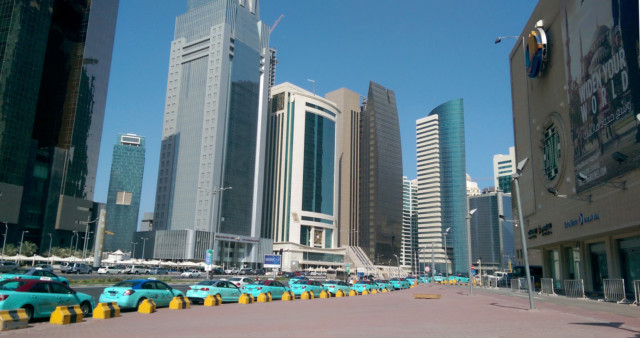
Doha: Ask any Doha resident about his or her experience with government-regulated cabs and you are likely to be at the receiving end of a long list of complaints – starting from the call centre right up to the point of exiting the vehicle. It could be blamed on the rapidly increasing population of the city and, hence, increase in demand, but mostly it is down to simple mismanagement of the service.
Mowsalat, the state-run transport company that regulates taxi services in Qatar, is believed to have a fleet of over 3,000 vehicles for its own brand of taxis called Karwa. In addition, the company has handed out franchises, which are run under the names of Al Million and Al Ijarah and have fleets of over 500 each. Despite having well over 4,000 cabs on its roads, Doha is unable to meet the demands of the rapidly increasing population and a big number of business and leisure visitors.
A wide gap between supply and demand of taxis is not the only reason why residents remain unhappy with cab services. A typical request made for a taxi via the services’ call centres could lead to a waiting time ranging from anything between two hours up until forever.
“Whenever I have called Karwa’s call centre, I have been asked to wait between one to two hours, so naturally I have stopped wasting my time on the phone and I just flag a cab on the road,” Zubair, who recently moved to Qatar, told Gulf News. “Even then, I mostly end up paying extra as the drivers don’t run their meters and end up overcharging, knowing that most customers will oblige,” he added.
Such grievances have played into the hands of technology-based transportation services such as Careem, which may cost an extra ten riyals per ride but make sure their customers step out of the cars happy. Speaking to Gulf News, Careem’s Mudassir Shaikha described how his company sees itself as a “marketplace” that connects customers with suppliers. The suppliers, in this case, are the wide range of privately run cabs or limousines, which are operated both individually and by companies.
“Suppose there is a driver looking for a passenger on the next street but you don’t see him and he doesn’t know you are looking for a cab so the match doesn’t happen. Whereas through technology, we are able to make the match happen,” Shaikha explained.
The convenience of having a car at their doorstep in a matter of minutes and not worrying about sharing the ride with other passengers – which is a common practice in Doha — has led several customers to happily make the switch from Mowsalat-regulated taxis to services such as Careem and, more recently, Uber. Being a globally renowned brand made it relatively easy for Uber to penetrate the Qatar market when it launched eight months ago.
While Uber Doha’s General Manager Majed Abu Khater said his company doesn’t see itself competing against traditional cab services as they serve a differently priced market segment, it is evident that by keeping its minimum fare at 15 riyals (minimum fare for Mowsalat-run taxis is 10 riyals), Uber does not want to miss out on any potential customers.
Speaking about his company’s direct competition with Careem, Akhter said; “For companies offering a similar product to Uber, we welcome the competition as it really makes everyone up their game.”
Indeed, in a move to keep up with their new competitor, Careem brought down its minimum fare to 14 riyals (Dh14.12) from the previous fixed amount of 30 riyals.
Shaikha was more open about admitting that Careem does see all other means of transportation, including personal cars, as competition. “At the end of the day, we are serving the same need so we view everyone as a competition,” he said.
With the introduction of both companies, local limousine companies and individually run private cabs have benefited in that they now have a steady source of income and the competition to woo customers has led to improved service. However, the low strata of customers who do not mind cab pools or poorer service continue to stick with Mowsalat-run taxis.
As one regular cab user told Gulf News, if the Karwas, Al Millions and Al Ijarahs could train their drivers better and regulate the service evenly in all areas, there is no reason why customers would ever feel the need to shun them.











